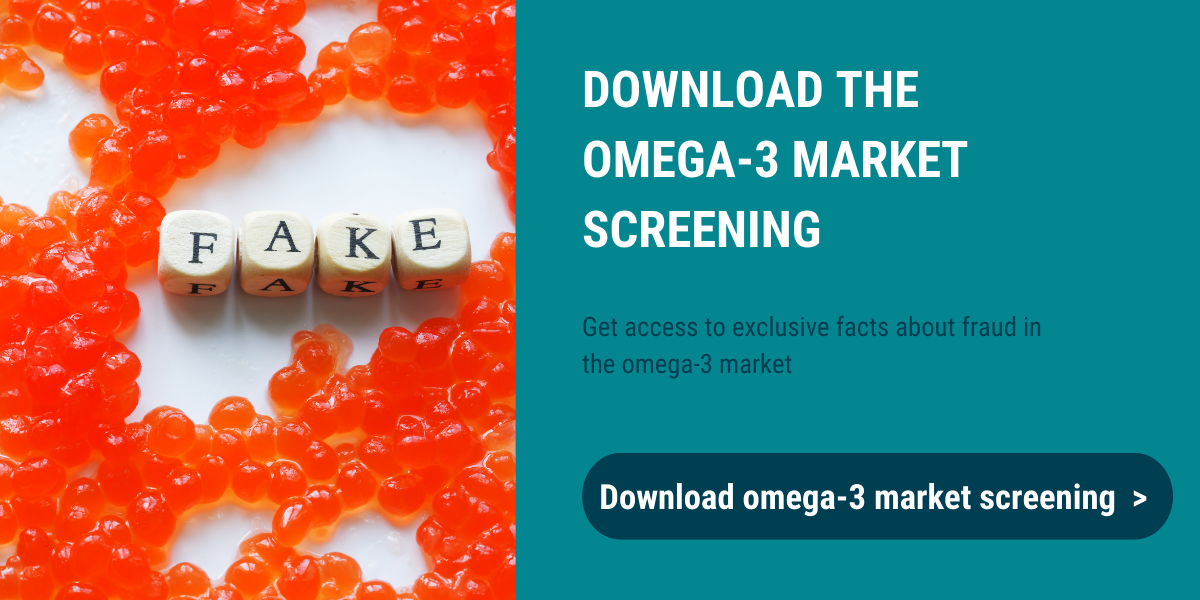The basic idea behind entering into any given certification is to differentiate from competitors by having a third-party validate one or more key features associated with your product. Hence, a lack of such key features prevents some brand owners from choosing to be certified.
The sources of the omega-3 product originates from several different types of fish, from fisheries all over the world
The more fish oil sources pooled together into a product, the harder it is to control the quality and purity of the product. For brand owners carrying such products, it will be challenging to show transparency and create good storytelling about the product´s origin. This is definitely an obstacle when considering getting certified for authenticity and purity.
The sustainability and impact on the environment might not have been considered in the omega-3 product´s manufacturing process
Most providers of omega-3 certifications evaluate the product’s impact on the environment and Mother Nature. The above mentioned multiple sourcing strategy will increase the carbon footprint due to multiple global transport routes. This means that the product will struggle to prove sustainable, and the brand owner will probably not choose to enter into a sustainability certification.
The product could be based on false label claims
It’s sad but it’s true. Many brand owners use false label claims to promote and sell their products. For instance by claiming that it is based on sources of higher quality than it actually does. Or, in other words: to promise consumers something else than what they actually get. The percentage of falsely labeled omega-3 products can be as high as 30-40%. This is strictly illegal and a third-party certification provider will not tolerate this type of fraud, which might be another “good” reason for a brand not to get its omega-3 product certified.
The omega-3 product could potentially be made from low-quality raw material
As mentioned earlier, the product should be made from sources that are authentic and as pure as possible. There are big differences between the sources of omega-3s, and to get certified your omega-3 source should be of the highest possible quality.
The brand is not aware of the high ROI that an omega-3 certification will provide
Yes, you did read correctly. An omega-3 certification that communicates the proof of the quality of your product, will increase the ROI. A certification is like a quality seal. For today’s enlightened consumers, this will gain trust and prove that you are acting responsibly, as well as providing a safe and sustainable supplement. Brands not being aware of this unique selling point and how it will impact sales, are probably not realizing the value in getting certified.
The omega-3 brand is not able, or does not want to act transparently
If a brand doesn’t want to provide evidence-based transparency, an omega-3 certification will probably not be a solution that brings any difference to the table. The whole point of getting certified is to show the world that the brand acts responsibly and that you can prove it by being transparent. When it comes to transparency, more is more. So, brand owners only willing to be partly transparent about their products will most likely be seen as less committed to the cause by consumers.
There might be one reason in particular, or several reasons why omega-3 brands choose not to get certified. Regardless of the reason, we know for sure that consumers are willing to pay more for a product that is transparent, where they can be sure that they gain the health benefits promised, a safe product, as well as being sure that the brand acts responsible.


